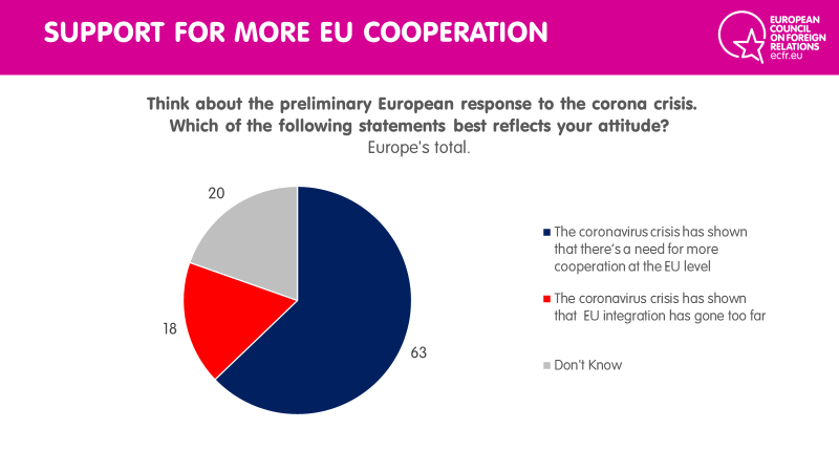About
The ‘Unlock Europe’s Majority’ project aims at pushing back against the rise of anti-Europeanism that threatens to weaken Europe and its influence in the world. Through public opinion polling in European Union Member States with representative sample sizes, ECFR’s analysis will unlock shifting coalitions in Europe that favour a more internationally engaged EU. This will show how different parties and movements can – rather than competing in the nationalist or populist debate – give the pro-European, internationally engaged majority in Europe a new voice.
The polling
In 2019, ECFR conducted YouGov polling of over 60,000 citizens across 14 European Union Member States, around the European Parliament elections. At the end of April 2020, once European countries had passed the peak of the corona virus crisis, ECFR commissioned polling of over 11,000 citizens across nine European Union Member States – representing two thirds of the EU’s population and roughly the same share of its GDP – to explore how Europeans’ thinking about the world was changing.
2020 results
The data from our recent survey reveals that 63% of citizens believe the coronavirus crisis has shown that there is a need for more cooperation at the EU level. However this support for more EU cooperation is conditional, and should not be viewed by policymakers as a call for more institution-building or as a vote of confidence in the existing EU structure.
ECFR’s analysis indicates that a collective narrative might be built for a Europe that protects its own – both economically, and also the security of the European geographical space – and also has an influential voice on the international scene, pushing for greater global preparedness for the next crises, such as the climate challenge. Despite diverging experiences of the corona crisis, there are real opportunities for European leaders to build concrete policies around common concerns, to reconstruct a permissive consensus for the European project.

ECFR will use this research to engage with pro-European parties, civil society allies, and media outlets on how to frame nationally relevant issues in a way that will reach across constituencies as well as appeal to voters who oppose an inward-looking, nationalist, and illiberal version of Europe.
